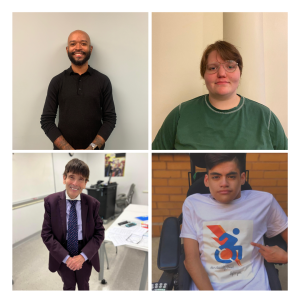
After managing six different support programs, Unity Parenting & Counseling has opened a new overnight homeless shelter at 7320 S. Yale Ave. for youth in high school or college who lack family and emotional support.
The Ujima Village center opened Aug. 19. Mayor Rahm Emanuel announced the center was opening as part of the city’s ongoing seven-year program to fight the homelessness epidemic in Chicago.
According to the center’s Executive Director Flora Koppel, the shelter’s doors are open only from 8:15 p.m. to 8:30 p.m. each night. The agency allows only 24 people to come inside during that 15-minute period because of the lack of beds and resources in the shelter, she said.
The youth at the shelter fall into three categories: the ones who have no jobs, those who previously had jobs and those who currently have jobs.
Some of the young adults said being at Ujima Village is better than being anywhere else, while some believe that this won’t be their last destination.
“If I stayed with other family members then there will be a lot of confusion and conflicts that wouldn’t end too good,” said Anthony Johnson, 21, who has been homeless for three years and is unemployed.
“I do have friends that want to take me in, but I would have to pay in order to stay with them,” Johnson said. “Right now I can’t stay with them because financially I am not able to. That’s why I believe that Ujima Village programs are perfect for individuals like me.”
With winter approaching fast, Johnson said he hopes to find a place so that he won’t have to walk several hours around the city while he waits for the shelter to open up.
While many others like Johnson struggle with homelessness, one particular woman said she finds being homeless a blessing instead of a curse.
Victoria Cook, 19, has been homeless for two weeks. But she said she doesn’t see herself as a homeless person and is different from the teens and young adults around her.
“We’re all in the same situation, but there are a lot of different personalities,” Cook said. “I see myself a little bit more successful than most people who have been here. I’ve only been here two weeks, and I already have a job, but others have been here for months and haven’t done anything.”
Cook said she decided to become homeless after her mother passed away. She explained that the Navy removed her from basic training after doctors misdiagnosed her with post-traumatic stress disorder (PTSD), an anxiety disorder.
She said her diagnosis by the military doctors was an excuse to cut back financially on soldiers returning home.
“I thought it was a bogus excuse,” Cook said. “But I chose to be homeless because of what I was going through. I didn’t want to go back to where I was living because I didn’t want to deal with the situations by myself.”
Despite her recent circumstances, Cook still manages to stay positive in spite of her tough challenges.
[pullquote]“What I have is hope, which a lot of people here don’t have,” Cook said. “I am not going to stay in this situation for too long.”[/pullquote]
Supportive Services Supervisor Anne Holcomb said youth like Cook thrive under structured programs such as the military and job core. She believes that most adults like her take advantage of the resources that are given to them.
“Most adults like Victoria [Cook] are either working or attending college,” Holcomb said. “They are very highly skilled intellectually and are striving to function in society.”
She also said the adults are self-motivated, self-directed and don’t need a lot of social services. Most just need a place to stay until they get themselves together, she added.
Holcomb said while there are some youth who can do well during the process of homelessness, others with major illness such as mental health issues or physical disabilities can have more of a difficult time conquering their trials.
Kari O’Doran, who was homeless in her teens but is now a youth engagement worker, spoke of her transition from being once homeless with nowhere to go to overcoming her challenges as a young adult.
“In order to get out of these type of situations, you must let go of any negative person, place or thing that is holding you down,” said O’Doran.
“It’s very important to let go of those situations,” O’Doran said. “It can hold you back and create negative patterns in your life that can be very difficult to snap out of.”














Be First to Comment